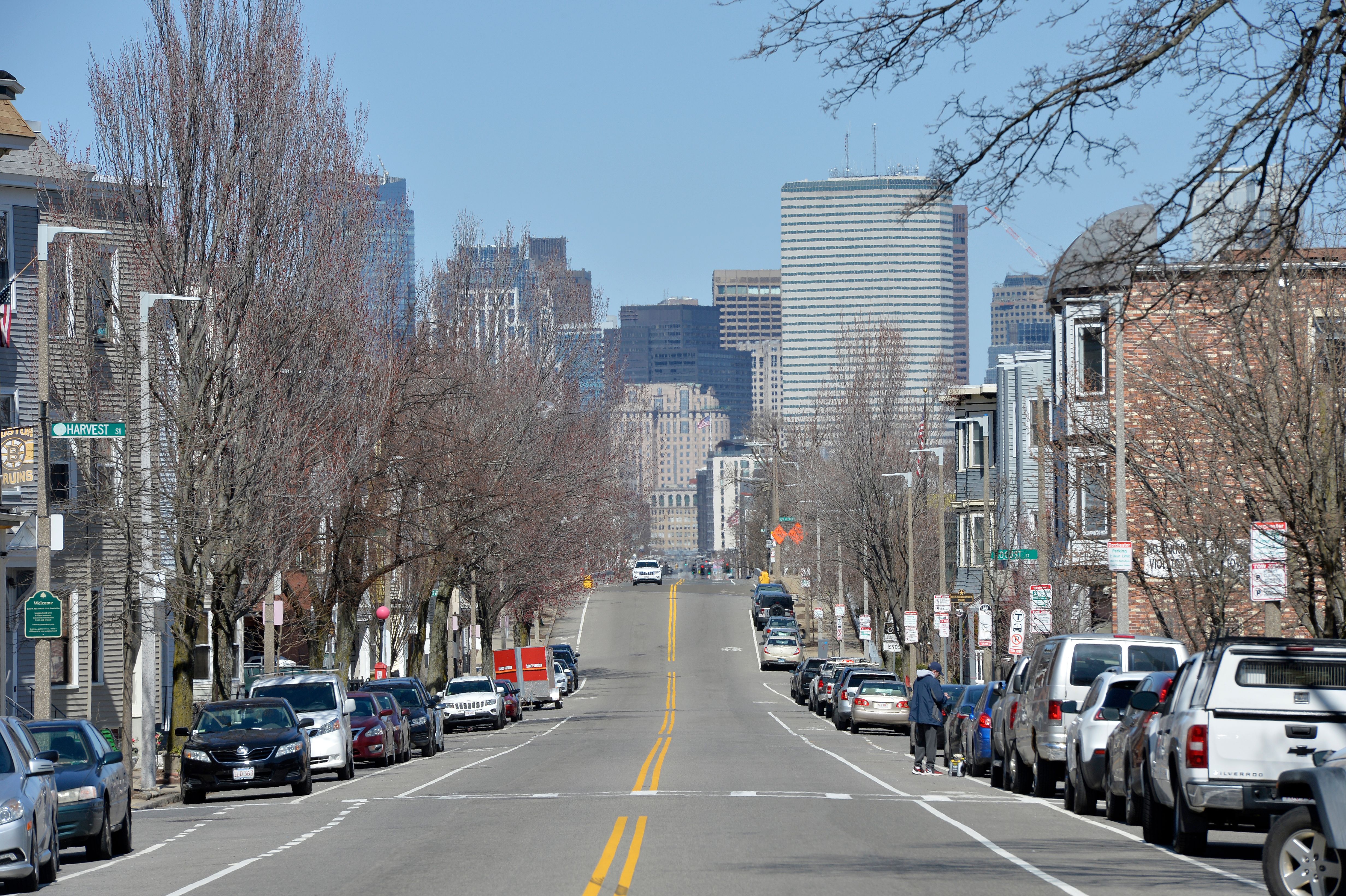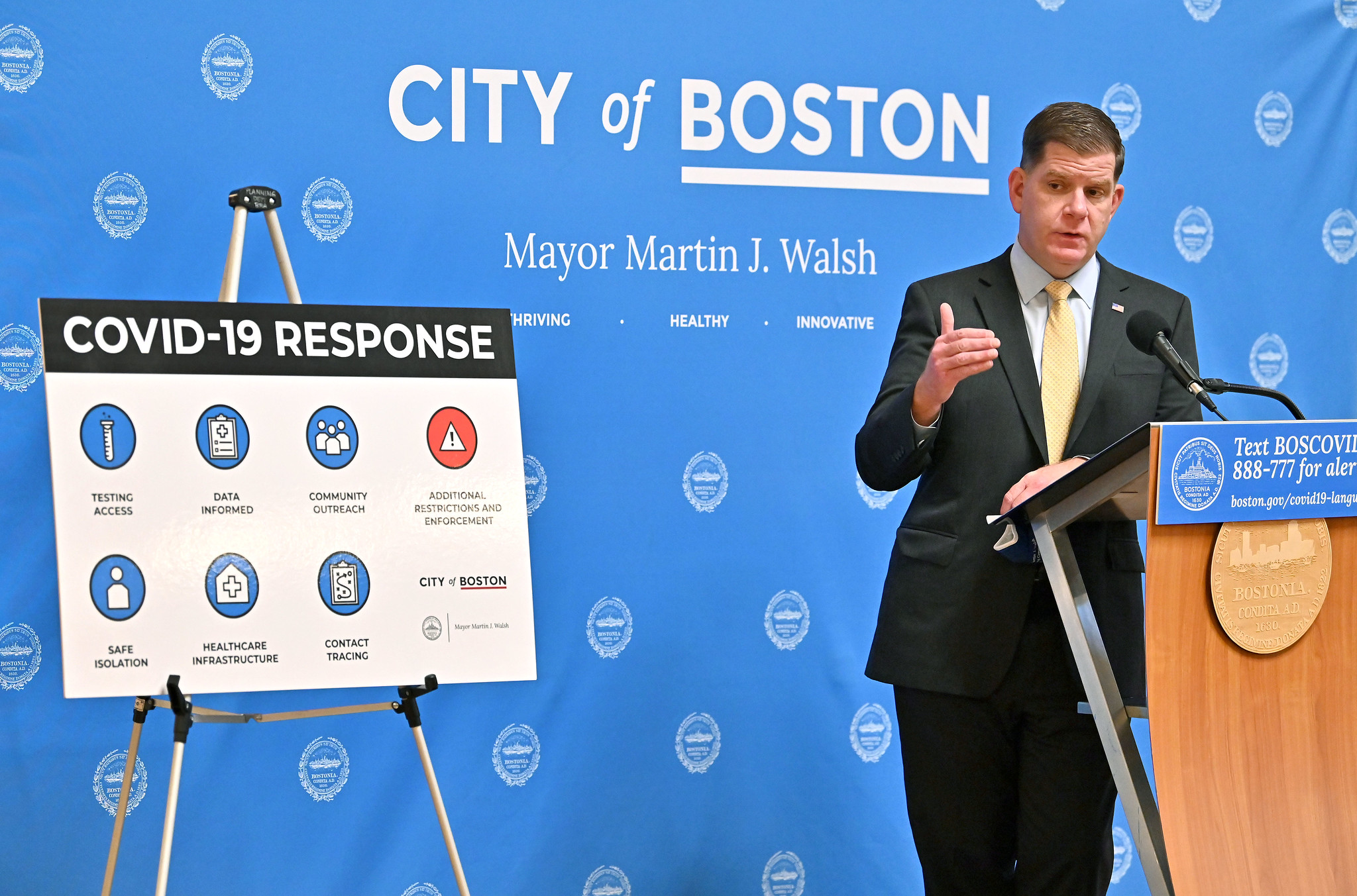Boston, experiencing a post-Thanksgiving coronavirus surge, is rolling back to a modified version of Phase 2, Step 2 of Massachusetts' reopening plan.
The rollback to Phase 2, Step 2 will close gyms, indoor event spaces, indoor recreational and athletic facilities (outside of college sports), sightseeing, historical locations and some other industries. There will also be new restrictions for other industries.
"Our goal with the three-week pause is to slow the spread now, so we can avoid more severe shutdowns later on," Mayor Marty Walsh said Monday in announcing the move.
He also said other nearby communities will announce similar actions.
Below, read the full details on what needs to close on Wednesday and what new restrictions will be in place for industries that will stay open, as listed in a release from Walsh's office:
The following industries in the City of Boston are required to close starting Wednesday, December 16 for at least three weeks:
- Indoor fitness centers and health clubs, including gyms using alternative spaces. One-on-one personal training sessions are allowed.
- Movie theaters
- Museums
- Aquariums
- Indoor recreational and athletic facilities (except for youth 18 and under)
- This does not apply to collegiate or professional sports. Collegiate sports teams in the City of Boston may continue to use indoor recreational facilities and fitness centers.
- Indoor pools may remain open for all ages under pre-registration format structure limited to one person per swim lane.
- Indoor recreational venues with potential for low-contact (batting cases, driving ranges, bowling alleys, rock-climbing)
- Sightseeing and other organized tours (bus tours, duck tours, harbor cruises, whale watching)
- Indoor historical spaces & sites
- Indoor event spaces (meeting rooms, ballrooms, private party rooms, social clubs)
- Private social clubs may continue to operate, if they serve food, consistent with restaurant guidance.
- Indoor and outdoor gaming arcades associated with gaming devices
The following industries in the City of Boston may remain in operation with the following restrictions in place starting Wednesday, December 16 for at least three weeks:
- Office spaces may remain open at 40 percent capacity. Employers are strongly encouraged to allow employees to work from home as much as possible.
- Indoor dining in restaurants may remain in operation with restricted bar seating. The 90 minute limit on seatings to reduce crowding and prevent the spread of COVID-19 will be strictly enforced. No member of any dining party may remain in a restaurant for more than 90 minutes in any calendar day. Ancillary activities such as pool tables, darts, trivia, etc. are prohibited.
- Bar seating is prohibited unless express written approval is issued by Boston's Licensing Board, after licensees submit a Bar Seating Plan for review and approval.
- Indoor non-athletic instructional classes in arts, education & life sciences for persons 18 years and older may continue to operate within the 10-person capacity limit.
- Outdoor event spaces used for gatherings and celebrations within the 25-person capacity limit, including those in parks, reservations, and other outdoor spaces not designated in Phase Four.
- Outdoor theaters and outdoor performance venues may continue to operate within the 25-person capacity limit.
Motion picture, television and streaming production may continue to operate.



